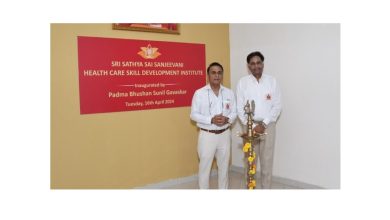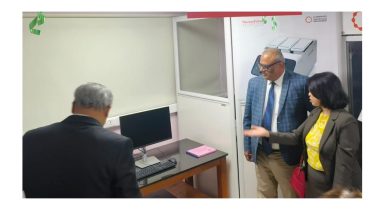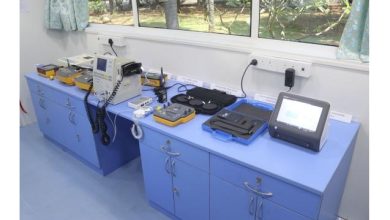World’s Smallest Heartware Ventricular Device (HVAD) pump saves Pakistani Girl with Heart Failure
Fortis Malar Hospital, Chennai

Chennai, 12th August, 2019: Doctors at Fortis Malar Hospital successfully implanted world’s smallest pump – Heartware Ventricular Device (HVAD) on a 14-year girl from Pakistan. This challenging and complex procedure was conducted by a team of expert doctors led by by Dr. K R Balakrishnan, Director, Cardiac Sciences, Fortis Malar Hospital and Dr. Suresh Rao KG, Head of Department, Critical Care & Cardiac Anaesthesia, Fortis Malar Hospital.
The 14 Year-old patient from Karachi initially underwent an emergency temporary Left Ventricular Assist Device (LVAD) after succumbing to a severe cardiac arrest leading to heart failure.The team of doctors implanted a HVAD over a heart transplant as along duration LVAD to save the patient.
Ayesha was admitted to the hospital with complaints of breathlessness and vomiting along with hypotension. She was diagnosed with dilated cardiomyopathy and was waitlisted for heart transplant. During the waiting period, Ayesha suffered a sudden cardiac arrest and doctors performed temporary LVAD (centrimag) surgery. Post the operation, she was recuperating well with her vital parameters being stable. Due to dearth and uncertainty of an available heart anytime soon, doctors as well as the family discussed her condition and decided to do a long duration HVAD instead of a heart transplant surgery.
Speaking about the case, Dr. K R Balakrishnan said, “A left ventricular assist device, or LVAD, is a mechanical pump that is implanted inside a person’s chest to help a weakened heart pump blood. Unlike a total artificial heart, the LVAD doesn’t replace the heart. It just helps it do its job. In rare cases, LVAD lets the heart recover its normal ability by giving it a chance to rest. It maintains or improves other organs, helps with doing exercise, and lets the person go through cardiac rehabilitation.”
Recounting the experience of managing her heart failure before the procedure and her hemodynamics in the postoperative period, Dr. Suresh Rao said, “Ayesha came to us with severe heart failure and her other organs were also getting affected.LVADs may also be used as ”destination therapy.” This means it is used long-term in some terminally ill people whose condition makes it impossible for them to get a heart transplant. In Ayesha’s case, heart transplant option is still open and if required the patient can choose to have transplant in the future.”
Ayesha’s mother said, “We are very happy to see that Ayesha has recovered well and is leading a healthy and happy life post-treatment. We thank the team of doctors from Fortis Malar for their dedication, immense support and giving Ayesha hope towards leading a normal life.”




